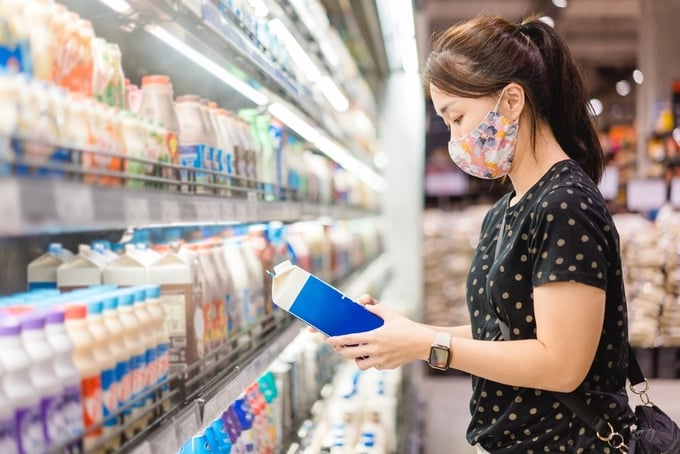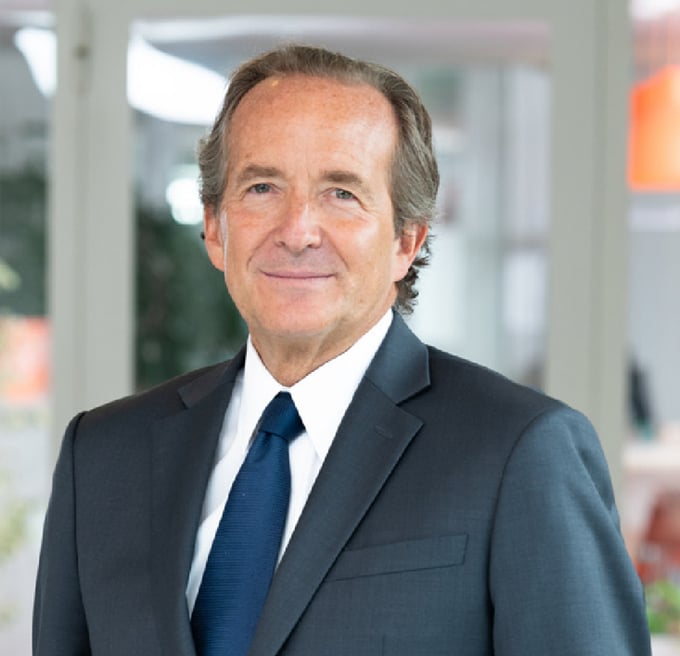November 26, 2025 | 12:02 GMT +7
November 26, 2025 | 12:02 GMT +7
Hotline: 0913.378.918
November 26, 2025 | 12:02 GMT +7
Hotline: 0913.378.918

54% consider the future of the planet when making food choices. 70% say that healthy products shouldn’t harm the environment.
Consumers are now actively incorporating environmental considerations into their food purchasing decisions, as highlighted in Tetra Pak's 2023 Index. These environmentally conscious consumers, often referred to as "Climatarians," are willing to adjust their eating habits to protect the planet.
While the market for healthy foods is already well-established, with consumers actively seeking products that positively impact their physical well-being, a significant majority now takes a more holistic approach. Seventy percent believe that healthy products should not harm the environment, and an additional 54% are willing to take responsibility for the planet by making dietary changes to contribute to a better world.
This dual focus is evident in the increasing number of consumers who are consciously reducing their meat consumption, commonly known as "flexitarians." Nearly half of all consumers indicate that they are reducing their meat intake or eliminating meat from their diets. The Tetra Pak Index, based on a survey conducted in ten countries by the global market research firm IPSOS, found that the trend toward meat reduction is a global phenomenon. While 56% of respondents mention health reasons as their motivation for adopting a flexitarian, pescatarian, vegetarian, or vegan diet, over a third (36%) specifically cite environmental concerns as their primary motivator.
The research also underscores a shift away from convenience as the dominant factor in food choices. Seventy percent of respondents are willing to forgo convenience for healthier products. Interestingly, the pursuit of healthier food options remains resilient even in the face of economic challenges, with only 17% indicating a willingness to sacrifice food and beverages with health benefits during the current economic climate.
The climatarian trend is expected to expand as the impacts of climate change become more widespread. Consumers now anticipate that food manufacturers will provide products that are both nutritious and eco-friendly.

Adolfo Orive, President and CEO of Tetra Pak, remarked, "The findings of this year's Index align with the path we've been following in recent years, focusing on decarbonizing the food industry and enhancing the resilience and sustainability of food systems.
Adolfo Orive, President and CEO of Tetra Pak, remarked, "The findings of this year's Index align with the path we've been following in recent years, focusing on decarbonizing the food industry and enhancing the resilience and sustainability of food systems. In many parts of the world, products like milk and juices are essential for daily nutrition, so it's crucial to optimize their value chain with innovations in sourcing, packaging, processing, and distribution. We've been actively involved in this process with our customers and suppliers."
Moreover, with the world's need for 60% more food by 2050, Tetra Pak is complementing these efforts with technologies that can explore new sources of nutrition. This includes exploring new plant-based sources and alternative proteins produced through biomass and precision fermentation. Both areas are vital for contributing to the sustainability of the food system.
Breakthrough innovations in food can play a significant role in providing products that are not only delicious but also resource-efficient. The encouraging news is that consumers are open to embracing innovations that enhance our way of living and eating, with 62% believing that technology plays a role in a more sustainable future. However, some consumers are concerned that such innovations might not be as natural as fresh, unprocessed foods, so striking the right balance is crucial.
Two-thirds (66%) of consumers say they now pay more attention to what they eat and drink – compared with 62% who said they paid more attention to the quality of their food and beverage choices in 2021. More than half (55%) now say they have improved their eating habits in the past two to three years. Reducing sugar (44%), eating more fruit (43%) and preparing homemade food (40%) are considered the most healthy options. Moreover, 70% agree that healthy food and drink make them feel better.
Consumers also say they are changing their behaviour in order to stay healthy, notably by drinking a lot of water/staying hydrated and through exercise.1 Also on the rise are consumption of nutritional supplements.
Consumers believe that healthy, sustainable food is key both to their own health and that of the planet – and they expect the food and beverage industry to deliver it. More than half (51%) of consumers believe that providing healthy food is the responsibility of manufacturers and brands – the number one choice, ahead of farmers/producers and government. They also look to them for guidance in this area: 72% see health and wellness as the number one issue that brands should speak out on, followed by nutrition (69%) and environmental issues (58%).
Translated by Linh Linh

(VAN) After the institutional merger, Da Nang possesses significant forest-carbon reserves and is proactively engaging in the carbon market, creating a new revenue stream.

(VAN) An Giang strengthens communication against IUU fishing, increases inspections and sanctions, and is determined to remove the EC’s “yellow card” while developing a sustainable fisheries sector.

(VAN) As green transition becomes a global trajectory, Viet Nam’s biggest challenge is not only technology and models, but how to ensure that capital flows reach the right beneficiaries.

(VAN) The Ministry of Agriculture and Environment must spearhead the construction of green governance, spanning decision-making processes and investment standards to policy evaluation mechanisms.

(VAN) The Agriculture and Environment sector of Khanh Hoa has achieved numerous milestones over the past 80 years, contributing significantly to the goal of establishing the province as a centrally governed city by 2030.

(VAN) Viet Nam is entering the pivotal period of 2025-2030, moving toward the formulation of the Remote Sensing Law, which will establish a legal foundation for the development of national digital data.

(VAN) The agricultural sector is finalizing the strategic framework for emission reduction, setting the goal of sharply cutting methane and 403.7 million tons of CO2 equivalent and moving toward Net Zero by 2050.